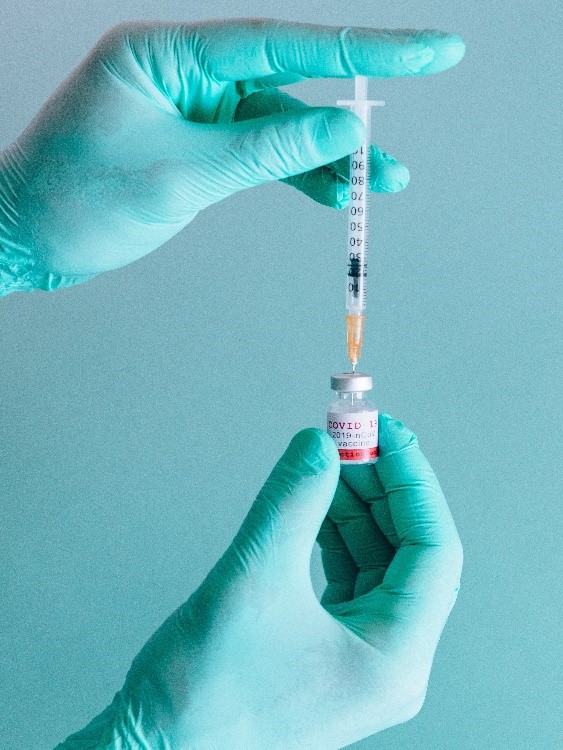Many Americans have been eagerly anticipating the arrival of the COVID-19 vaccine since the pandemic began. Employers must strike the balance of maintaining workplace health and safety with considering the individual circumstances of various employees. Below we cover crucial information for employers when it comes to vaccination requirements in light of the COVID-19 vaccine.
Updated EEOC Guidance
On December 16, 2020, the Equal Employment Opportunity Commission released guidance for employers regarding COVID-19 vaccines. It indicates that COVID-19 vaccines are currently available for use by Emergency Use Authorization, as opposed to typical FDA authorization processes. Employers need to use caution and realize what sort of inquiries can be construed as disability-related. For example: asking employees to show proof of COVID-19 vaccination is not a disability-related question. However, asking pre-vaccination screening questions is likely to reveal information about a disability and as such, employers must be prepared to show that the questions are begin asked out of a business necessity and are job-related.
The guidance also indicates that employers asking for proof of vaccination does not implicate Title VII of the Gene Information Discrimination Act (GINA), which prohibits employment discrimination based on genetic information. However, pre-vaccination screening questions, if the vaccine is administered through the employer, may implicate GINA if the questions relate to genetic information. As such, if the questions implicate GINA, it would be recommended that employers request proof of vaccination from employees instead of the employer administering the vaccination. Furthermore, administration of the COVID-19 vaccine by the employer or a third party hired by the employer does not constitute a “medical examination” under the ADA because it is not seeking information about an employee’s physical or mental health.
Vaccination as a Requirement
The EEOC guidance indicates that employers can require COVID-19 vaccinations. Under the Americans with Disabilities Act (ADA), employers can instill a qualification standard which among other factors, includes “a requirement that an employee not be a “direct threat” to the health or safety of other people at the organization. Lack of vaccination may be construed as a direct threat. However, requiring the coronavirus vaccine would still be subject to exemptions for medical and religious reasons, as all other vaccines are.
The EEOC has published guidance, titled Pandemic Preparedness in the Workplace and the Americans with Disabilities Act, for employers in the event of a pandemic. The publication has been updated throughout 2020 to reflect information regarding COVID-19. It indicates that organizations can require vaccination but that exceptions need to exist in the event of medical or religious objections, as per the Americans with Disabilities Act and Title VII of the Civil Rights Act. The EEOC guidance released on December 16, 2020 also iterates this, and indicates that employers need to work with individuals seeking exemptions in order to determine if reasonable accommodations are possible.
EEOC’s Stance May Become Stronger
Historically, the EEOC has not directed employers to mandate that employees receive vaccines, instead promoting a policy of encouragement. In the unlikely event that receiving a vaccine inflicts harm on an employee, organizations could face liability. Because of the high risk of harm that COVID-19 has proven to present to the community at large, it is possible that the EEOC may take a stronger position in the coming months. The EEOC may begin to recommend organizations institute a policy of vaccination requirement, subject to medical and religious exemptions, as opposed to a policy of vaccination encouragement.
Encouragement versus requirement policies may also vary based on industry. For example: healthcare facilities or employers that work with populations at higher risk for severe illness due to COVID-19 will be more likely to require vaccination as opposed to an employer that is operating with limited personal contact.
Cost of the Vaccine
The federal government is subsidizing the cost of the vaccine at this time, although the organization providing the vaccine can charge administration fees. Vaccine recipients can have this fee reimbursed by their insurance company or by funding provided through the U.S. Department of Health and Human Services if uninsured.
Ultimately, the majority of the population – between seventy-five and eighty-five percent- must be inoculated in order to achieve a level of societal protection, as iterated by Dr. Anthony Fauci, Director of the National Institute of Allergy and Infectious Diseases. Because the COVID-19 vaccine is so new, this is a rapidly evolving situation, with new information emerging daily. If you have questions regarding your specific circumstances, please reach out so that we may assist you.

